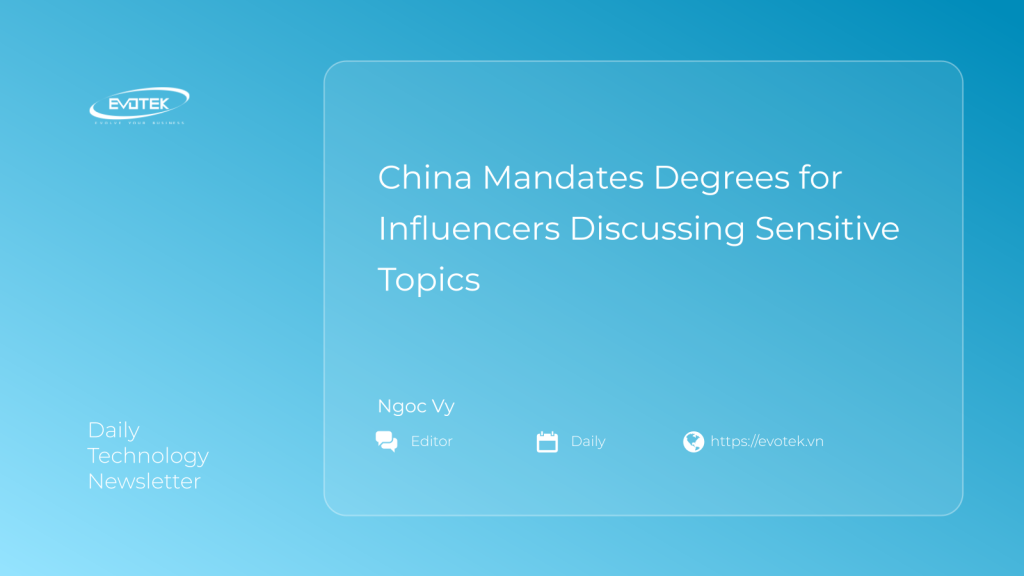China has implemented a significant shift in its online content regulations, requiring social media influencers to possess genuine academic or professional qualifications before discussing certain “serious” subjects. Effective October 25, 2025, this new directive aims to elevate the standard of information available online, particularly on sensitive topics.
New Credential Requirements for Content Creators
The updated rules, introduced by the Cyberspace Administration of China, mandate that creators obtain appropriate real-world credentials, such as a professional license, university degree, or certificate, if their content delves into regulated fields. These areas include, but are not limited to, medicine, law, education, and finance. Major Chinese social media platforms like Douyin, Bilibili, and Weibo are now responsible for verifying these qualifications before content goes live.
Influencers found discussing these regulated topics without the necessary professional backing face substantial penalties, including fines of up to 100,000 yuan (approximately $14,000 USD).
Enhanced Transparency and Advertising Controls
Beyond qualifications, the new framework also tightens rules on content sourcing and disclosure. Influencers must explicitly cite any studies, data, or research used in their videos. Furthermore, all artificial intelligence (AI)-generated material within content must be clearly labeled, promoting greater transparency for viewers.
Platforms are also tasked with educating their user base on responsible content sharing as part of this comprehensive rollout.
Advertising practices are also under new scrutiny. The promotion of medical products, dietary supplements, and health foods is now prohibited within educational content, seeking to prevent potential conflicts of interest and misleading information.
Balancing Information Quality with Freedom of Expression
Proponents of the new legislation argue that it establishes a higher benchmark for reliable information on critical societal issues, combating the spread of misinformation and unqualified advice. In an era where online personalities increasingly rival traditional experts in shaping public opinion, supporters believe these measures are essential for consumer protection and public health.
However, the new regulations have also sparked concerns among critics. Some observers fear that tightening control over who can speak on specific topics could inadvertently limit the scope of public discourse and stifle diverse perspectives online. This development arrives as influencers continue to wield significant power in influencing public trust and attention across digital platforms.

 日本語
日本語 한국어
한국어 Tiếng Việt
Tiếng Việt 简体中文
简体中文